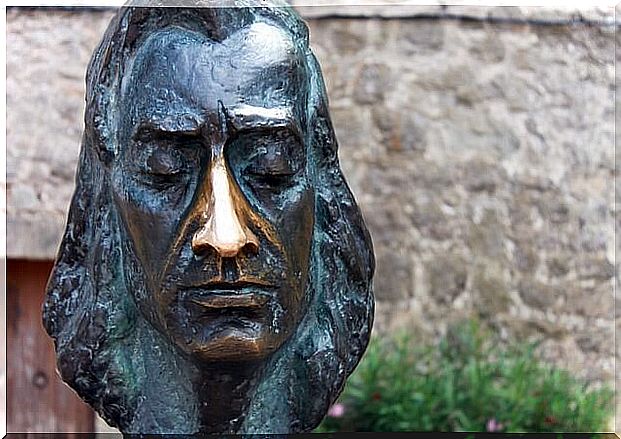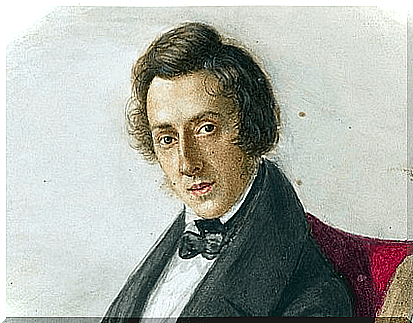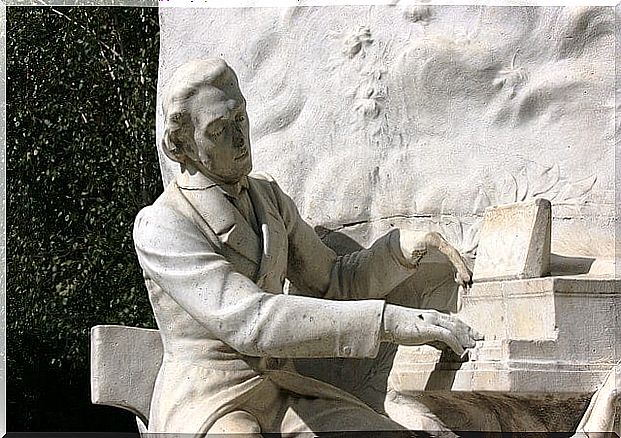Chopin: Biography Of The Greatest Pianist In Poland

Chopin is one of the best known names on the piano scene. In Roman Polanski’s film The Pianist , his pieces play a very important role. Like the protagonist of that dramatic story, Frédéric Chopin was a Polish man scarred by war.
Born on March 1, 1810, Chopin is popular for his solo piano pieces. Although most of his works are very short, this great composer continues to be recognized for the poetry in his work.
Chopin’s style is light and delicate, capable of collecting many feelings at once. The pianist composed not for large concert halls, but for intimate settings. Thus, Chopin’s music is best suited for small rooms or private gatherings.
The melodies of his works rarely had names. Frédéric felt that he should not impose a meaning on them. According to Chopin, the meaning of music was in the music itself. For him, the duty of the melody was to be beautiful, not to communicate a superficial story that someone wanted to impose on it.
According to musicologists, Chopin is characterized by the chromaticism of his works. This means that it uses notes and chords of different scales to create a single piece. This makes it difficult to interpret, but very beautiful to listen to.

Chopin’s early years
Frédéric’s father was a teacher who met the musician’s mother through the private classes he taught. Perhaps it is from his father that Frédéric gets his passion for teaching.
Both Frédéric’s sister and mother played the piano. However, it is clear that Frédéric was the most talented of the family.
At just 6 years old, Chopin played melodies that he heard around him. Thus, Chopin learned to play music by hearing others play and by reproducing what he heard.
Within a few years, Chopin was considered a child prodigy. He was invited to play the piano in front of great figures from political life, such as Tsar Alexander I.
When he entered the Conservatory of Music, Frédéric was free to study piano individually. His teachers recognized the talent of the young man since he entered the Academy. For this reason they allowed him to explore the instrument as he preferred.
During his childhood and adolescence, Frédéric develops a deep love for Poland. Throughout his life, the Polish musical influence and longing for his country would mark Chopin’s composition.
Despite being very successful in Warsaw, Frédéric needed to leave Poland in order to continue growing. Frédéric visited Vienna, a city that would celebrate him greatly. The concerts that Chopin gave in that country made him a consecrated pianist.
Frédéric returns to Poland, but plans another trip immediately. Yet misery awaited him. A year later, Chopin leaves Warsaw with the plan of a European tour.
His plans are thwarted when Poland comes into conflict with Russia. It remains inactive in Vienna for more than a year. After that time, and without hope of returning home, Chopin decides to leave for Paris.
Parías and George Sand, his eternal love
The Parisian society accepted Frédéric as one of its own. His talent and genius allowed him to settle in Paris with relative ease. In this city, Chopin would dedicate himself to the main work of his life: composition and teaching.
Frédéric Chopin was a man who hated to give concerts and play in front of an audience. For this reason, the number of times he appeared in public were very few. However, his popularity as a piano teacher was very high.
The richest and most powerful aristocratic families hired him to teach their daughters. Unlike other musicians of the time, Frédéric quickly found a niche that offered him financial stability.
Five years after arriving in Paris, Frédéric meets his life partner: Aurore Dudevant. Aurore was a novelist with a libertine lifestyle, who already had two children out of wedlock.
Aurore was known as George Sand to the public. This was a pseudonym that allowed her to post at a time when women were never very unrecognized in the workplace.
Chopin spends the best moments of his life with Sand. Unfortunately, a short time later, Frédéric falls ill, never to recover. Tuberculosis would affect his life for 10 years, before causing his death.
Every summer after contracting the disease, Sand and Chopin spent time in the south of France. The weather allowed Frédéric to recover slightly. Despite his illness, this time in Frédéric’s life was the most productive in terms of composition.

Poetry and paradoxes
Many experts consider Chopin’s music as precious and with a tendency to the dreamlike. For the moment, the music had a much more heroic, monumental and ambitious character. Thus, Frédéric’s music was considered effeminate and weak.
However, Chopin’s music, like few others of his time, has remained in the canons for piano. His study methods continue to be used by student pianists. Frédéric devoted himself passionately to teaching the piano. He enjoyed the classes much more than he ever enjoyed the performances and concerts.
The music of Frédéric Chopin is a poetry full of paradoxes. His music did not seek to paint an image, or tell a story. However, almost all his work brings to our minds some scene: from the night breeze to the funeral desolation.
Frédéric is responsible for giving the piano chair a range of chromatic possibilities. Anything is possible through hard study and dedication. The musician understood the piano like few composers. Thus, from his technical knowledge, pieces emerged that can only be played on the piano. For Chopin, this is the truth of music: the piano for and by the piano itself.









